
Issue: 66 / November 2019
Foreword
Welcome to the November 2019 issue of PSC News, a brief summary of what we’ve been up to over the last couple of months.
In this issue we highlight the use of High Voltage Direct Current (HVDC) in the electricity industry. From the integration of renewable energy to advances in control systems, HVDC is an important technology and PSC has been working with our clients across the globe to deliver HVDC projects with advanced engineering studies, project implementation and support.
This is also our second issue delivered in our new format. I hope you enjoy the update, and I welcome your comments or suggestions. If you would like to get in contact, please email [email protected].
Tim Ritchie Chief Revenue Officer
HVDC: All Grown Up
Picture this: It’s the 21st century; the consumer electric market is expanding, needs are diversifying and George Westinghouse’s alternating current (AC) – previously thought to be the ultimate winner in the war of currents – is now making room for its bitter rival, Thomas Edison’s direct current (DC) systems.
We speak in allegory however, not to incite a continuation of the war but to set the scene for the fascinating and complex resurgence of what is called High Voltage Direct Current (HVDC) transmission. Benefitting from 137 years of additional development of both technologies, the electric power industry is beginning to realize the benefits of cooperation between the two.
Integration of Remote Offshore Energy with High Voltage Direct Current (HVDC)
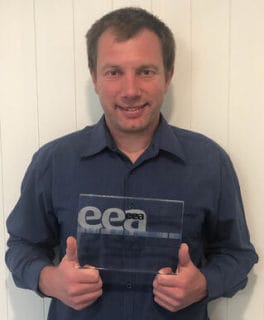
PSC’s Stephen Butler delivered a paper at the Electricity Engineers’ Association (EEA) conference in New Zealand, on ‘Integration of Remote Offshore Energy with High Voltage Direct Current (HVDC)’.
A full copy of the ‘Offshore HVDC’ paper can be found at the link below. The paper was also presented at the Electric Energy Society of Australia EECON 2019 conference in Sydney in November.
PSC supports commissioning of CU (North Dakota – Minnesota) HVDC link
HVDC’s ability to send large amounts of electricity over long distances with low electrical losses has historically made it a technology of choice for long-distance bulk power transmission.
The CU power line operated by Great River Energy enables generators in North Dakota to transmit power to the populous state of Minnesota. The CU line is a 1000 MW high voltage direct current (HVDC) LCC (Line-Commutated Converter) connection. Originally commissioned by ABB in 1979, the converter stations were due for several upgrade activities including replacement of air-cooled valves with the latest water-cooled valve technology, a new valve cooling system and a new control and protection system.
PSC HVDC control systems specialists supported ABB with delivery of the CU HVDC upgrade project. The upgrade enabled a significant reduction of on-site power consumption; the power formally drawn by these large air-cooling fan motors is now utilized and sent via the HVDC link. The upgrade also improves grid reliability and efficiency for Great River Energy.
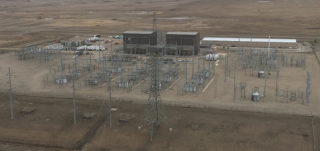
Coal Creek Converter Station in Underwood, North Dakota
Site Commissioning
PSC worked closely with ABB in the areas of site commissioning, through to system testing, final handover and the completion of the trial operation period. The site commissioning involved oversight of the installation of control cubicles, testing coordination/planning, and the commissioning of high voltage equipment into the ABB MACH 3 control and protection system.
In addition to assisting the successful completion and documentation of all agreed tests set out by ABB, PSC also supported oversight of the new installation through its important trial operation period. PSC staff supported the project on site in Underwood, North Dakota and in Dickinson, Minnesota for approximately 6 months.
About ABB
ABB is a major HVDC technology manufacturer that has commissioned more than 120 HVDC projects worldwide.
Regional HVDC interconnection and its impact on network performance
HVDC transmission links are a viable alternative for transmitting power over long distances. With large scale renewable energy availability being limited, HVDC links are being utilized to transfer renewable energy to a load center. PSC’s engineering specialists have completed system studies and analysis on a proposed HVDC link exceeding 300 miles in length intending to transmit renewable energy between two countries.
In response to a request for proposals solicited by government agencies seeking long term renewable energy projects, a 1000MW Voltage Source Converter (VSC) High Voltage Direct Current (HVDC) link to transmit renewable power from Canada to the United States had been proposed for consideration.
PSC performed system impact studies to identify any possible power system issues in relation to system technical performance requirements that may be introduced into the transmission system due to the inclusion of the proposed project. The studies also identified how Flexible AC Transmission System (FACTS) devices can assist in improving the dynamic stability of the system.
Increasing HVDC link capacity without asset replacement
For HVDC interconnector owners, increasing capacity with minimal expenditure on assets can give more flexibility and a significant increase in revenue for commercial operations. A UK interconnector owner requested PSC to investigate the potential for an increase in the capability of its interconnector.
PSC reviewed the original design and commissioning data for each major component of the HVDC link so the limitations of each component could be understood. Thermal overloading of assets was evaluated as the main risk and thermal models were made for the relevant components and studies undertaken. The main restriction will always be ensuring that the interconnector operates within its thermal design limits.
The modelling indicated that when ambient temperatures were below a certain level, an increase in capability was possible without any modifications to the converter assets. This would mean an increased capability for approximately half of the year.
A review of the cable burial conditions and cable temperature data again revealed opportunities for increased capability, particularly in the winter. At the time of writing further cable temperature data is still being gathered and reviewed to ensure that the optimum solution can be applied.
Another key aspect of maximizing the capability of assets is ensuring that accurate asset monitoring data is available, and that historic data can be stored and analyzed quickly and simply. This enables comprehensive asset health monitoring, including trends and providing data to enable optimization of thermal models, built into control systems.
Cigre Canada 2019 retrospective

The conference’s theme, “Innovation at the heart of power grid transformation,” sought to address implications of the rapidly changing digital and electric economy, presenting a forum to meet and share knowledge with the goal of fostering innovative practices to ensure the power grid’s safe, reliable adaptation to change.
Addressing the audience at the Sponsor Panel, PSC’s John Camilleri (Manager, Operational Technologies) asked attendees to remember that even in an era of rapid technological advancement, simplicity and ease of use remains paramount.
“Imagine walking into a windowless room with a 4-dimensional model of the grid, with absolute control to move around and see real time data; to evaluate historical information, to look forward, perform analysis, to be advised by AI on what actions to take in an emergency, to walk a virtual line with a field crew,” said John. “This is one vision of the energy system of the future, and there are many more. How can we leverage these digital technology advancements to enhance the human-machine interface to enable us to intuitively do our jobs without cumbersome tools?”
Many speakers presented works exploring the impact of renewables. PSC System Studies Consultant Matin Rahmatian delivered a presentation sharing the results of solar plant simulations evaluating the advantages and disadvantages of active and reactive power priority operating modes. To see Matin’s presentation, click here.
On the exhibit floor, attendees expressed interest in the challenges associated with aggressive renewable energy targets. For example, carbon emissions targets and the role that renewable technologies can play in meeting them, as well as the role that improving battery technology will play in achieving a 100% renewable grid. Increased storage capability ought to assist in grid operations and help overcome some intermittency of wind and solar.
CIGRE remains a critical venue for technical knowledge sharing and networking in the area of electric power systems. Click here to view CIGRE presentations.
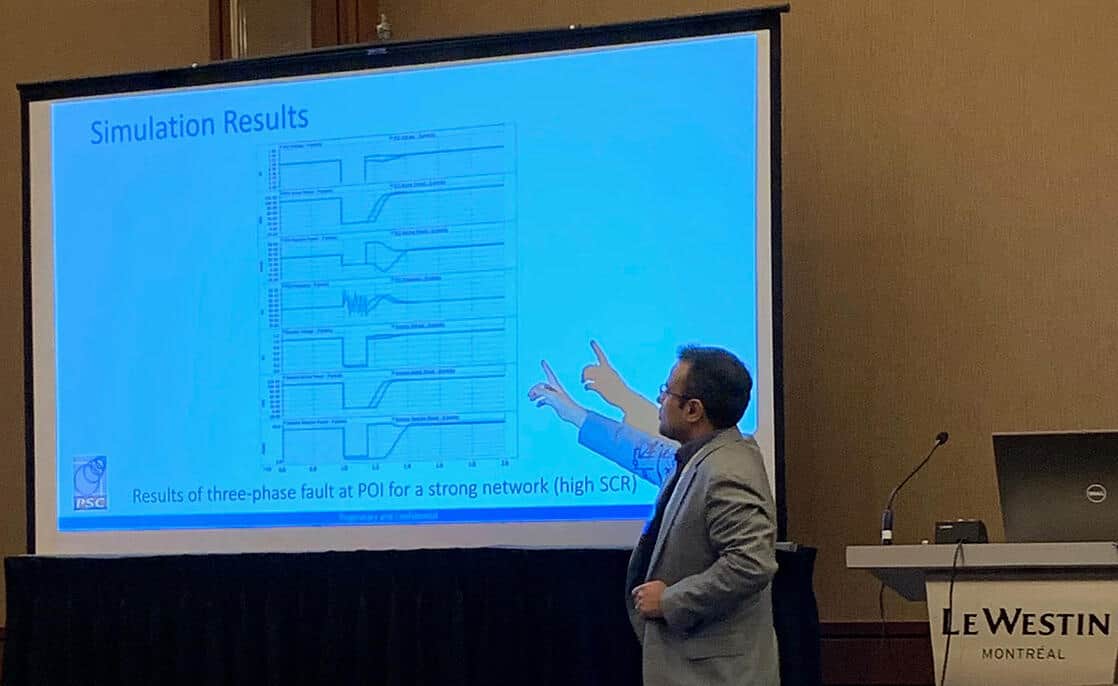
Matin Rahmatian presenting at the CIGRE Canada Conference
IEC MSB Conference
PSC’s Technical Director Dr. Zia Emin was part of the invited panel by the International Electrotechnical Commission (IEC) Market Strategy Board during the annual general meeting of IEC in Shanghai China. Zia attended the conference on 22nd October representing CIGRE as the Study Committee he is chairing has an active working group looking at power system resilience. The conference was organized around three themes that are forecast to have an impact on future standardization requirements: 2030 and the IEC; Infrastructure Resilience and Climate Change; and Cyber Security and the Industrial Internet of Things. The panel was moderated by Dr. Ian Oppermann, CEO and Chief Data Scientist of the NSW Government’s Data Analytics Centre in Australia and Zia gave a presentation on power system resilience.
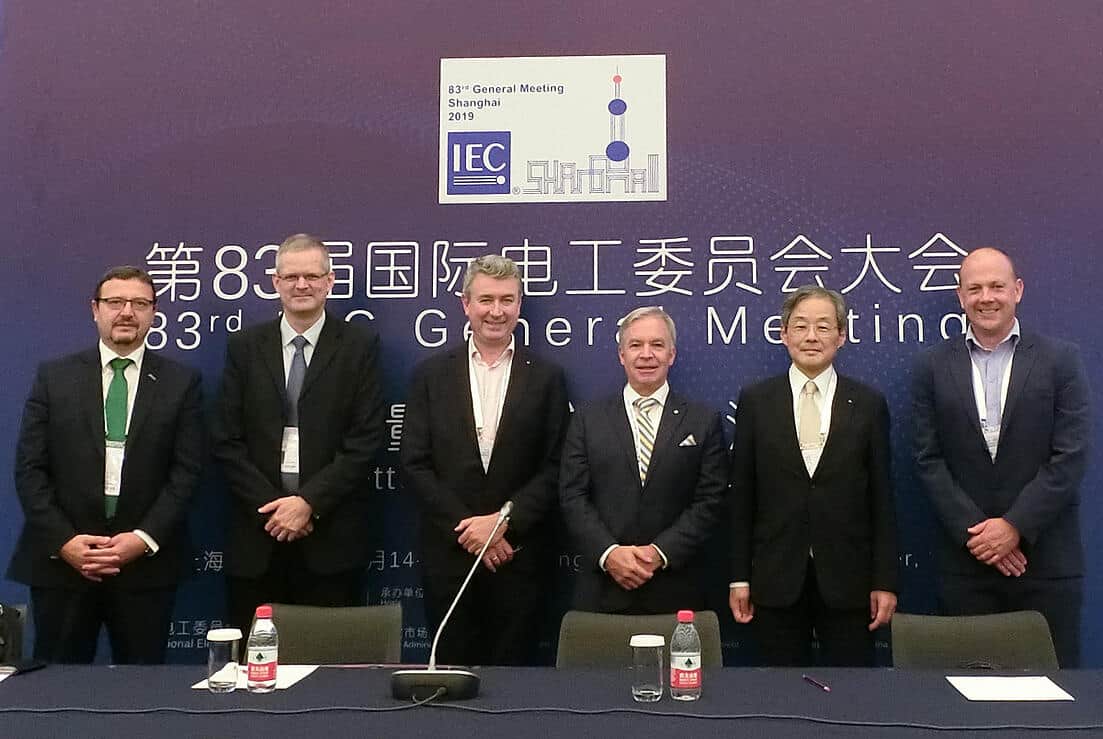
Dr. Zia Emin(L) and panel members for the IEC MSB Conference
PSC 2019 Scholarship winner Laura Harding is bringing a ‘big spark’ to the NZ electricity industry

Laura at Lake Rotoiti in the Nelson Lakes National Park
Laura Harding of the University of Canterbury in Christchurch, New Zealand, was selected from a strong field of submissions as the recipient of the 2019 PSC Scholarship, based on her outstanding academic achievement combined with a strong focus on practical work experience. Laura has completed work assignments with Mitton Electronet and Electronet Transmission and is currently the University IEEE Committee Chairperson for 2019. We spoke with Laura about school, sailing, and the future of the NZ electricity industry.
Doing the right thing isn’t always easy
The last two years have been eventful for PSC. We have put a tremendous amount of focus on defining and articulating who we are, what drives us, what our core values are, and how they impact our engagement with our clients and the communities we work in. The decisions that come out of this effort aren’t always easy or comfortable; but having clearly articulated values and actively considering them in our decision making ensures we are well aligned.
We recently came to one of these difficult decisions when considering our holiday plans. For many years, PSC provided our clients and staff a calendar made of photos taken by PSC staff from around the world. Developing the calendar has been popular with staff because it’s a great way to showcase the talent and creativity among us. Many clients valued the calendar and it has been rewarding to walk into client offices and see it hanging.
However, when we considered the calendar in the context of our values, we realized the impact printing and shipping hundreds of calendars each year does not align with our values around sustainability. Additionally, printing and shipping calendars around the globe is costly both in terms of dollars spent and dedicated staff time. In the end, we believe there is more good we can do by redirecting the resources used for the calendar. As a result, we have discontinued the PSC calendar program.
I’m very pleased to announce the establishment of PSC’s charitable giving and sponsorship programs. PSC is redirecting resources previously put into the calendar into two initiatives. First, a charitable giving program. PSC employees are developing a list of charities we believe align with our values. Later this year, we’ll ask our clients to select one of the charities and by the end of the year, we will make a donation in their name.
At the same time, we have established a budget aimed at supporting important initiatives for our staff and the communities we work in. In the PSC Community Sponsorship program, PSC employees can request a grant to support things like sponsoring a racing team, team uniforms, band instruments, and other community involvement.
With the rapid evolution of the electricity industry, it’s an exciting time to be at PSC. It is our ongoing engagement with each other that empowers us to make a difference and do the right thing. We are tremendously grateful for your ongoing trust and support.
Tim Ritchie Chief Revenue Officer
PSC Welcomes New Staff
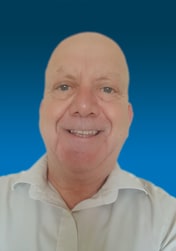
Kevin Smethurst
Welcome to Kevin Smethurst who joined the PSC UK team in October. Kevin is working with us in the Warwick office as a Principal Consultant within the Electrical Engineering business unit. Kevin joins us with over 40 years of utilities industry experience, including power generation, transmission and compliance testing. Recently this experience has been with National Grid as a Grid Code Compliance Engineer and Power Systems Engineer. Kevin has managed Grid Code Compliance, System Testing and Bilateral Agreement requirements for connections to the National Grid for over a decade. During this time, he has been developing system test plans, procedures and test reports along with the on-site testing and witnessing requirements for numerous connections to the National Grid transmission network. These have included; EWIC, Moyle, BritNed, NEMO, IFA, onshore and offshore wind farms and synchronous machines. Kevin is currently working on the grid code compliance testing of an energy from waste generator in the UK.

Jaryn Vaile
Jaryn joins us in our Westborough office as a Power System Studies Consultant. Prior to moving to Westborough in 2019, Jaryn lived in Calgary, Canada, where he earned his bachelor’s degree in Electrical Engineering, from the University of Calgary. During his undergraduate degree, Jaryn worked on a variety of power system studies using both PSS®E and PSCAD software. After college, Jaryn continued his work in power system studies completing a comprehensive geomagnetic disturbance vulnerability assessment project for a Canadian utility that received an award of excellence by the Association of Consulting Engineering Companies Manitoba (ACEC-MB). Jaryn brings skills in programming and a wide range of traditional and esoteric power system studies.
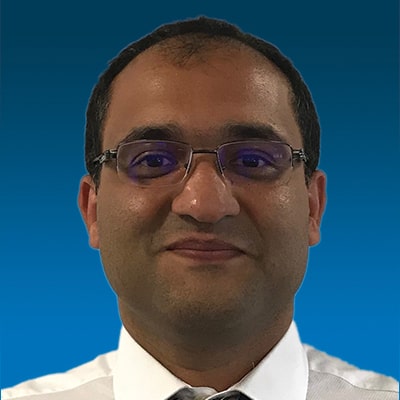
Dr Hooman Andami
PSC Europe is pleased to welcome Hooman Andami to the team – Hooman joined us as a Senior Consultant within the Electrical Engineering team, based in Warwick. Prior to joining PSC, Hooman was a Power Systems Engineer in the Customer Solution Department / System Design at National Grid where he was working with various generators on the design and development of their connections to the Great Britain electricity transmission system. This involved engaging closely with customers and key stakeholders, as well as carrying out power system studies to design and optimize network reinforcements for compliance with technical requirements. Hooman previously worked as a Research Associate at the University of Manchester focusing on two significant research projects – one which focused on the activities and responsibilities for the operation of the future distribution system and the second looking into the ways in which distributed energy storage devices could contribute to frequency regulation of the power system.
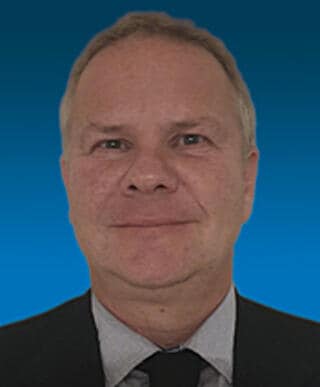
Dale Rawlinson
PSC welcomes Dale Rawlinson, a Test & Release Manager with 15 years’ experience in the electricity industry. This includes extensive experience managing teams completing system integration, performance and user acceptance testing. These have included large energy management system projects where Dale worked on the design, planning and control of the test activities for the projects. He has been responsible for the release management of production software releases, test reporting and the review of test tools to ensure the highest quality standards are maintained for the project. Dale uses his extensive experience in software testing to ensure his teams maintain an effective, cohesive and consistent approach to testing. Dale will be supporting Ausgrid in New South Wales.

Cindy Liang
We welcome Cindy Liang to PSC! Cindy joins us in our Vancouver office as an Associate Power System Studies Consultant. Prior to moving to Vancouver in 2017, Cindy lived in Sichuan province, China, where she earned her bachelor’s degree in Electrical Engineering, from Southwest Jiaotong University. Her capstone project involved short-term load forecasting in power system using neural network methodology. After college, Cindy moved to Vancouver to complete her Masters of Applied Science in Electrical Engineering at the University of British Columbia. Cindy brings skills in dynamic phasor modeling and electrical system design of DC micro-grids.

Nydia Xu
PSC welcomes Nydia who joins us in our Vancouver office as an Associate Power System Studies Consultant. In 2017, she completed her undergraduate in electrical engineering at Tongji University, Shanghai, China. After that, Nydia came to the University of Manitoba to pursue a master’s degree with the focus on battery energy storage systems. During her master’s study, Nydia completed two internships at Manitoba Hydro and RTDS Technology independently, and she has previously worked at Manitoba Hydro International as a part-time Engineer in Training for five months. She is familiar with PSS/E and PSCAD simulation tools.
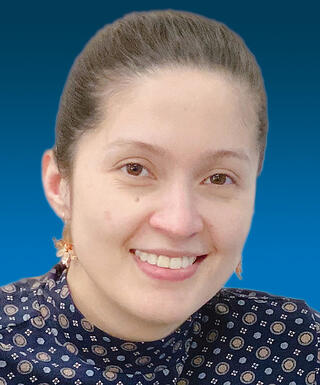
Isabel Alvarez
PSC is pleased to welcome Isabel Alvarez who started in September with the Power Systems team in Australia. Isabel is a Power Systems Engineer with four years experience working in a Utility and also an Engineering consultancy in Columbia. Isabel’s experience includes network planning and also grid connection studies. Isabel will be based in the PSC office in Melbourne.
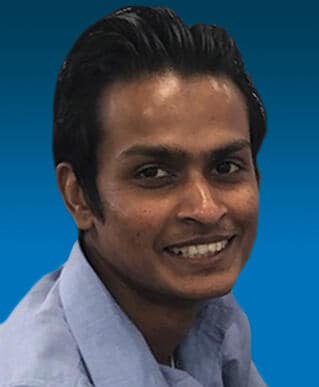
Pathum Sudasinghege
We welcome Pathum Sudasinghege who has joined the PSC Australia Power Systems team. Pathum is a Graduate Power Systems Engineer and will be part time based in Wollongong for the next 2-3 months whilst he finishes off his PhD. In 2020 Pathum will be permanently based in our Brisbane office. Pathum will predominantly be focused on EMT modelling for insulation coordination and also PSCAD modelling for large generators.
Naresh Kumar celebrates 10 years of excellent service with PSC
Naresh Kumar recently completed 10 years of excellent service with PSC. Naresh is a Senior SCADA Engineer and has extensive experience in SCADA and IT applications support, analysis, software development, integration testing and implementation. This included system integration for the Meridian Energy Generation Control System (GCS) project where he was also involved in database, scripts and displays migration, the development environment, and technical support during the project. Naresh is based in our Auckland office and is also heavily involved in supporting our electricity distribution and rail network clients across New Zealand. The PSC management team congratulates Naresh on reaching this important milestone – well done.
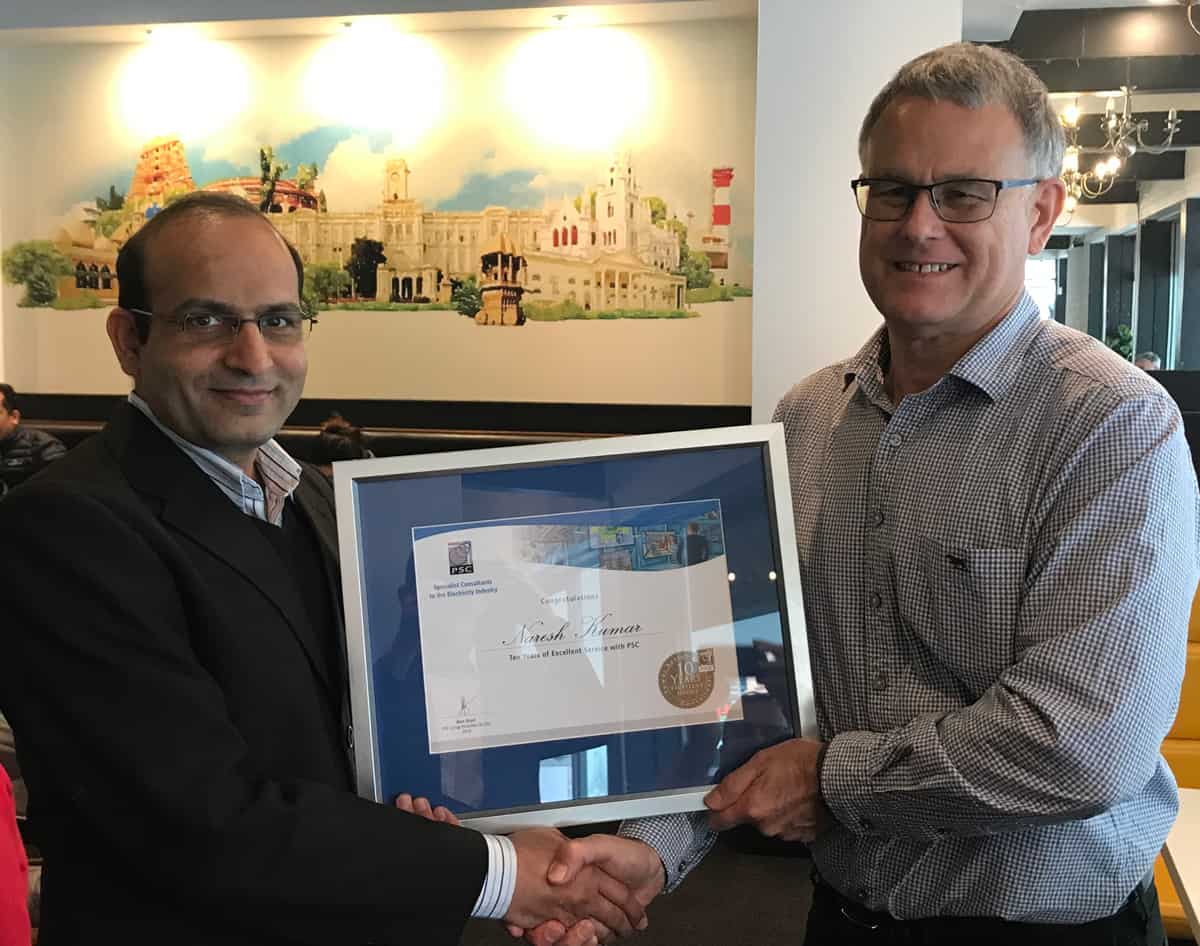
Naresh Kumar (L) and Ross Gaspard – PSC General Manager Operational Technologies & Market Systems (R)